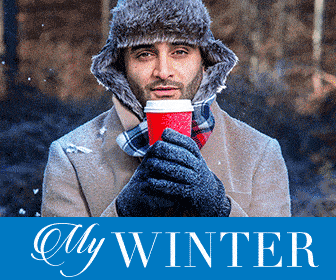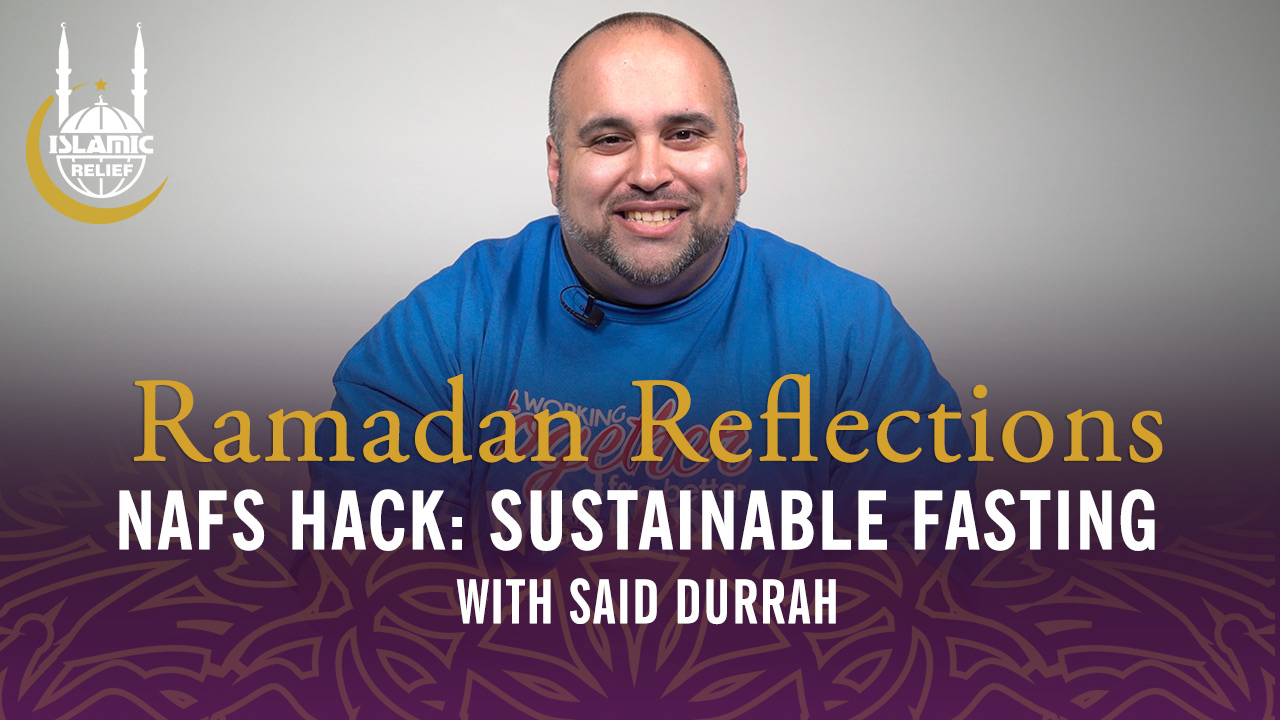A Guy Like You, On the Warmer Side Of Winter
Nada: Saba, thanks for taking the time to talk with us more about your involvement in Islamic Relief USA’s winter campaign. As you know the campaign has taken a non-traditional approach to help raise funds for brothers and sisters around the world who’ll be struggling to keep warm this winter, especially refugees. What were your initial thoughts about getting involv ed in this campaign? Did you think it was a good idea?
ed in this campaign? Did you think it was a good idea?
Saba: I think initially I felt like it would be an enjoyable experience overall, but the more I began to think about it, the more I felt that the contrasting lifestyles being displayed would really give people a moment to think about the basic items that most people in the world would consider a luxury. I think this campaign highlights the reality of the excess most of us live in or even more so, the unnecessary deprivation and lack that these kids are experiencing around the world.
Nada: Have you ever had to spend a winter outside of the United States? Have you ever spent a winter among individuals who have to worry about how they’ll survive the winter?
Saba: I spent one winter in Iran, but even then, I don’t think I experienced one real night in intolerable cold. I hear stories all the time from the older generations of immigrants and how terrible the winters were, but somehow we forget that a vast group of children are still being raised under these conditions.
Nada: As the daughter of immigrants, and now solid Americans, I’ve heard many stories of family members working really hard to build a new life despite unfavorable odds. Some readers might be very closely connected to someone in their family that at one time were refugees or immigrants and struggled through harsh winter conditions. Do you know of anyone close to you that has shared this kind of perspective? Can you tell that story?
Saba: My family came to America initially under refugee status and my father used to tell me stories of how they would crowd around one heat source during the winters as a kid. He would tell me how dangerous it was because the fire was from an oil source and how one time the lamp tipped over. He took me to the old house much later in life as a way of giving me a perspective on how far removed he made sure me and my brother were from these harsh realities.
Nada: Had you ever done anything like this before? What do you actually do for a living?
Saba: Haha I think the most any of us have done is the time we’ve spent taking selfies. I am in consulting.
Nada: There’s so much going on in the world today, what do you think our priorities should be to help make the world a better place?

Saba: I think realistically, we spend too much time in debate on who is responsible for the well being of the underprivileged and we don’t spend enough time trying to be the ones responsible. We live in the most individualized time in history, yet people are the most connected that they have ever been (on a superficial level). We have to realize that we are all connected and it is an absurd thought to believe that a child’s well being on the other side of the world, won’t somehow directly or indirectly affect the happiness of your own family. Acceptance of this reality is key.
Nada: What were your personal goals when agreeing to cast yourself into the role of the privileged person who might be looking forward to a snowy winter?
Saba: I felt like the goal was to try and look good lol but also, it was important for me to represent the modern, privileged, nonchalant human being that is used to promote the luxury we take for granted.
Nada: I heard from some of the camera crew that you were really cold when filming the campaign … Is it true?
Saba: Yes! It was actually very interesting closer to the end. Being out in the cold became exhausting and ironically, I experienced the exact opposite of what was being conveyed by the pictures.
Nada: Spiritually and emotionally, how did working through some of the scenarios make you feel about being someone who’s really lucky, as many of us are, to have simple things like warm sweaters, waterproof boots, hot tea and dry socks?
Saba: I think the part that became the most heartbreaking, was the times where I was supposed to emulate the kids I was being compared to. It began to really make sense to me how underrepresented they are around the world and how much more grateful and deserving they are of the privileges we not only disregard, but even sometimes complain about.
Nada: Does this experience inspire you to do more during the winter? Does it change the way you think about how others experience winter?
Saba: This experience made me realize that if I am not consistently take the proper steps to help someone out of their troubles, the least I can do is try and be grateful at every movement.
Nada: Perhaps intentions can be misunderstood in a campaign like this. What do you hope this campaign accomplishes and what do you want donors to get from it?
Saba: I would like the donors to realize that these kids and families could easily have been you and your family. I want them to realize that we can’t keep turning our attention away from the underprivileged population in the world. At some point, we will all be ashamed that we didn’t do more. You never know how much of a huge impact your minimal effort can have.



